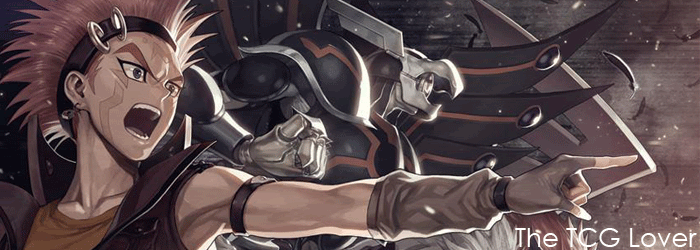I just read an article on the United Gosus website. (Rodrigo I think his name was) was talking about how to make reads on the opponent outside of the normal game process itself. I'm not talking about "Oh he's set 3 cards, chances are one of them is starlight road", since that is situation dependent and doesn't require you to take your eyes off the board.
Like Poker (another card game I love to play), half the battle can be won simply by taking a good look at your opponent's attitude. Knowing how they act when they're bluffing and when they're not can mean the difference between winning hundreds and thousands and walking away feeling salty.
Here's a few examples that I feel are a good way to read the opponent:
1. Typical "Pro" habits.
This can be further broken down to the actual actions themselves. Most players shuffle their hand since they are told it will convey a sense of "Don't mess with me" to the opponent. While most of the time this works, it can't do anything against a strong minded and confident player. You don't need to constantly move cards around in your hand and not doing it can actually give your opponent a sense of security. Especially in a game where most hands play themselves, all you need to be able to do it play it correctly.
Another pro habit would be graveyard fanning, since all it does is allow you to check your graveyard in a redundant way. If you pick it up and flick through it, how your eyes direct to certain cards in the graveyard are not seen by the opponent unlike fanning it along the table.
2. Their eye movements.
While it's not an exact science, it's considered important to understand how looking one way depicts a feeling and looking the other way depicts another. If your opponent is currently on the losing end and they draw into a power card (dark hole, monster reborn), their eyes will shift a certain direction (Either left or right) and it will give you an idea about whether they are happy to see the card or not. This eye direction is generally the same for all people, due to either side of the brain governing different functions. One side means "What I can do with this new information" and the other side means "I wish I drew (Card name) over the card I just drew". While it requires you to weirdly stare at your opponent, if you start to notice a trend, you can almost predict your opponent's plays before he makes them.
3. Passive/Aggressive nature.
During a duel, a person's posture or response time changes depending on when the situation requires it. If a person draws an immediate out, then they might sit up straight since they now have something they can do. If they are playing passive and building up resources, then they might be slouching. Of course that depends on if you're playing in a YCS setting since in a tournament like that, you should always be alert and save your slouching for in between rounds.
Another obvious way to read passive/aggressive nature is how they treat a certain monster being summoned. It's annoying having to deal with a Laggia, but the true annoyance comes when they set 3-4 backrows behind it. If they show a complete passive attitude to a Laggia Set 4, then they're either accepting defeat or they have the perfect out to it. Something like Fossil Dyna or Snowman Eater means they have nothing to worry about and if they are setting a monster on their turn, it's worth looking at their behavior to see if you can get any reads about what it might be.
4. Lack of "pro" habits.
Sometimes there's a fine line between excessive behavior in a game of yugioh, and actually looking like you have no idea what you're doing. Hand shuffling can be done by anyone and it's worth noting that. But what about if your opponent is making slow movements or is generally not fussed by what they have in their hand (as in, they are not bothered to check it and keep it face down on the table). Or what about if they have their elbows on the table?
How about when you summon a semi-popular monster (a floater like card trooper for example) and they have to stare at the card (Without picking it up) for a few seconds so they can remember it's effect?
It all shows a lack of confidence. I'm not talking about the person themselves not being confident, but I mean in the context of the game. A player that knows all the cards they are expecting to play against inside out will not show ANY lack of confidence since it allows for a way for you to get an immediate idea of how competent they are.
Seriously, there's a lot of different ways to read your opponent without having to even talk to them. All it takes is for you to scan them with your eyes and see them for how they really are.
Anyway. Later haters!

No comments:
Post a Comment